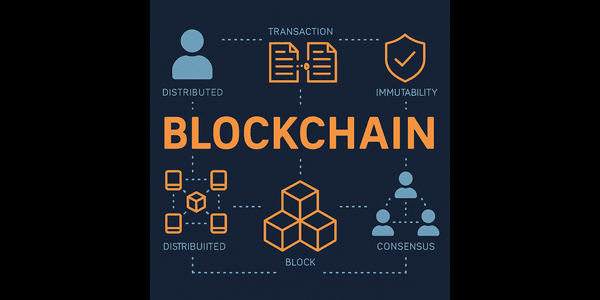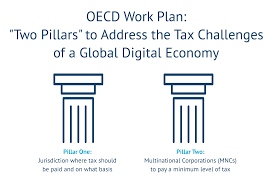
International tax for Foreign Companies in India — Overview
Coca-Cola Transfer Pricing on AMP and India Fallout
The Effect of the appeal lost by coca cola In the Eleventh Circuit (and other courts) sustain the Tax Court’s approach — i.e., heavy emphasis on economic substance, FAR (Functions-Assets-Risks) analysis, rejection of allocating meaningful “marketing intangibles” to low-risk supply points merely because they paid AMP — India’s tax administration and courts are likely to increase audit scrutiny of AMP/marketing allocations, re-characterise low-function affiliates as contract manufacturers, and prefer comparable profit / FAR-driven methodologies over earlier formulaic splits.
Specific ways Indian rules/practice may reshape
- Stricter scrutiny of AMP/marketing intangibles
- Indian TP authorities already challenge disproportionate AMP spend that seems to create value for foreign AEs. The Coca-Cola ruling gives them a judicially-supported playbook to argue that paying AMP doesn’t automatically create non-local intangibles unless the affiliate truly owns and exploits them. Expect more AMP-related adjustments in India.
(* Indian tax authorities already challenge big AMP spends. Now, thanks to this ruling, they have a stronger legal “*playbook” (reference) to argue both ways:
- If the Indian affiliate does not own the brand, then spending on AMP might still be viewed as benefiting the foreign parent, and they can make AMP-related tax adjustments.
- But they can’t simply assume that every AMP expense creates brand value for the parent — they have to show real ownership/control issues.)
- Greater emphasis on FAR + economic substance (and less on contractual labels)
- The Tax Court’s deep dive into what the supply points actually did (vs. what agreements said) will encourage Indian revenue authorities to ignore formal contracts and focus on real functions, assets and risks. This will increase use of detailed operational evidence in audits (sales, marketing control, decision-making, KPI’s, staffing). (*Performance over paperwork).
- Wider use of Comparable Profits Method (CPM) and rejection of formulaic profit splits where comparables exist
- The IRS successfully applied CPM in Coke; Indian authorities may push CPM (or other routine-based methods) when comparable independent companies exist, instead of accepting a group’s bespoke profit-split formula that produces large out-of-line margins for low-function entities.
- Increased adjustments, higher exposures, and pressure for unilateral/APA/MAP solutions
- If Indian audits start mirroring the IRS approach, taxpayers could face significant adjustments. That will push multinationals to seek APAs (advance pricing agreements) and MAP (mutual agreement procedure) relief to avoid double taxation and long litigation.
(IRS-style audits in India could mean big adjustments → risk of double taxation.
APA: Agreement in advance to lock in pricing rules, avoid disputes.
MAP: Tax authorities of both countries work together to remove double taxation after it happens.)
- Possible administrative guidance or legislative clarifications
- Expect CBDT/Revenue to issue clarificatory guidance on treatment of marketing intangibles, AMP documentation expectations, and acceptable benchmarking approaches — especially if other countries’ courts affirm the US approach and the issue becomes a common audit line. (No specific CBDT rule yet — but commentary predicts pressure for guidance.)
(*Right now, there’s no official CBDT rule for this in India.But experts think that due to global tax pressure, CBDT will likely release some guidance soon.)
Why India is particularly exposed
- India is a market jurisdiction where multinationals run substantial local marketing and distribution operations; local authorities are sensitive to profit allocation where global groups report low taxable profits in India while booking profits elsewhere. The Coke decision strengthens the technical basis to reallocate profits to parents where local affiliates are functionally low-risk
What India’s tax authorities might do next (realistic timeline)
- Short term: revenue officers incorporate Coca-Cola-style questions into TP audit checklists and push AMP/FAR lines in ongoing audits.
- Medium term: CBDT issues guidance or FAQs on marketing intangibles/AMP documentation (if disputes spike).
- Long term: legislative tweaks only if guidance and litigation don’t resolve double taxation risks — but that would take budget cycles and parliamentary time. (These are plausible scenarios; no official Indian law changes announced yet.)
Practical steps for Indian taxpayers
- Re-run your FAR + economic substance documentation
- Maintain contemporaneous, concrete evidence (org charts, decision logs, marketing strategy approvals, agency agreements, invoices, KPI metrics) showing who truly controls and benefits from marketing/intangible creation.
- Stress-test AMP spending and intercompany allocations
- Perform sensitivity analyses: do your affiliate margins line up with comparable contract manufacturers/bottlers? If not, document why (unique local risks, local investments, exclusive local rights).
- Revisit intercompany agreements
- Ensure contracts reflect the commercial reality (decision rights, budgets, approvals, ownership of outputs) and avoid labels alone (e.g., “owns marketing intangibles”) without substance.
- Benchmark with caution; expand comparables research
- Use rigorous comparability adjustments and make sure comparables reflect similar FAR profiles — the Tax Court prized credible comparables when it applied CPM.
- Consider defensive measures: APA, bilateral MAP, and reserves
- Where exposures are large, start APA talks early and evaluate MAP readiness. Also assess tax provisioning in case adjustments are asserted.
- Plan for audits — map out likely questions and data requests
- Expect requests for decision memos, marketing plans, budgeting approvals, analyses of alternative suppliers/distributors, and proof of ownership/use of intangibles.
Consult with A2consultants to explore our indepth knowledge and insight on Transfer pricing.
A2consultants Indian Business Companion is also available on ChatGPT, making it more accessible for Professionals, Businesses, and Foreign Entities seeking insights into the intricate tax challenges you can acess from this link
Book a Free consultation
https://chatgpt.com/g/g-6865f276fc1c8191b467aa48f145a369-a2consultants-india-business-companion.
Scan Here to Know More with ChatGPT





